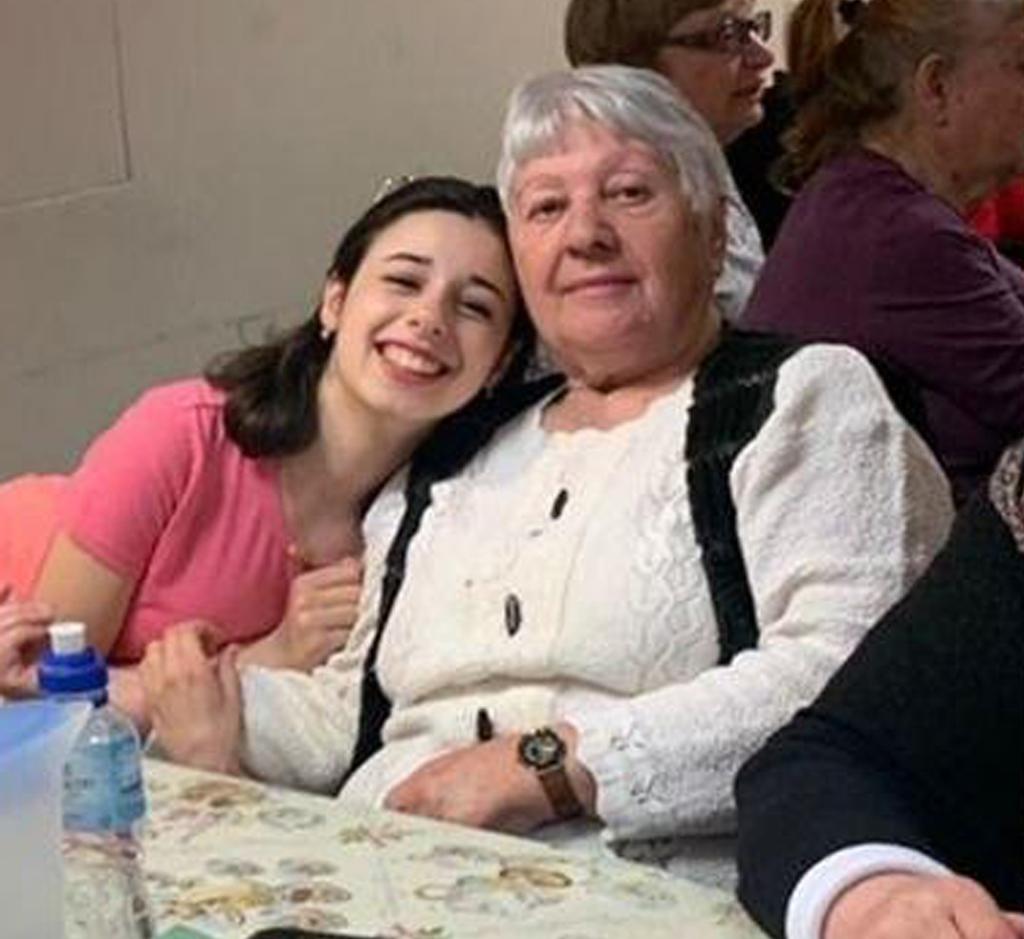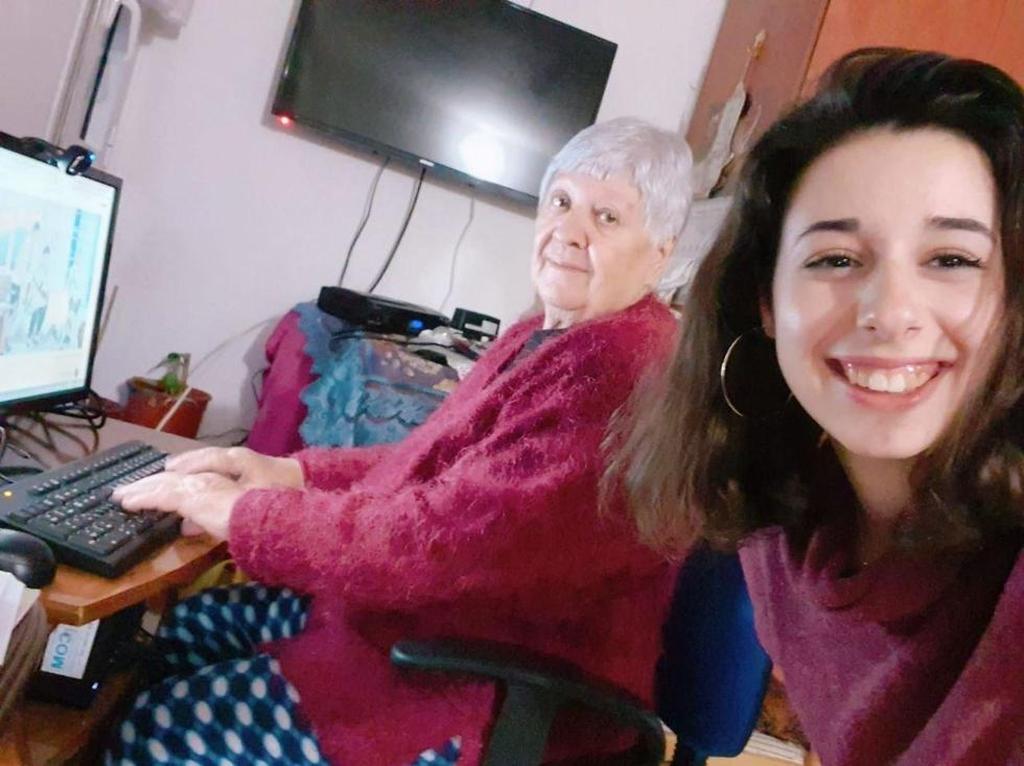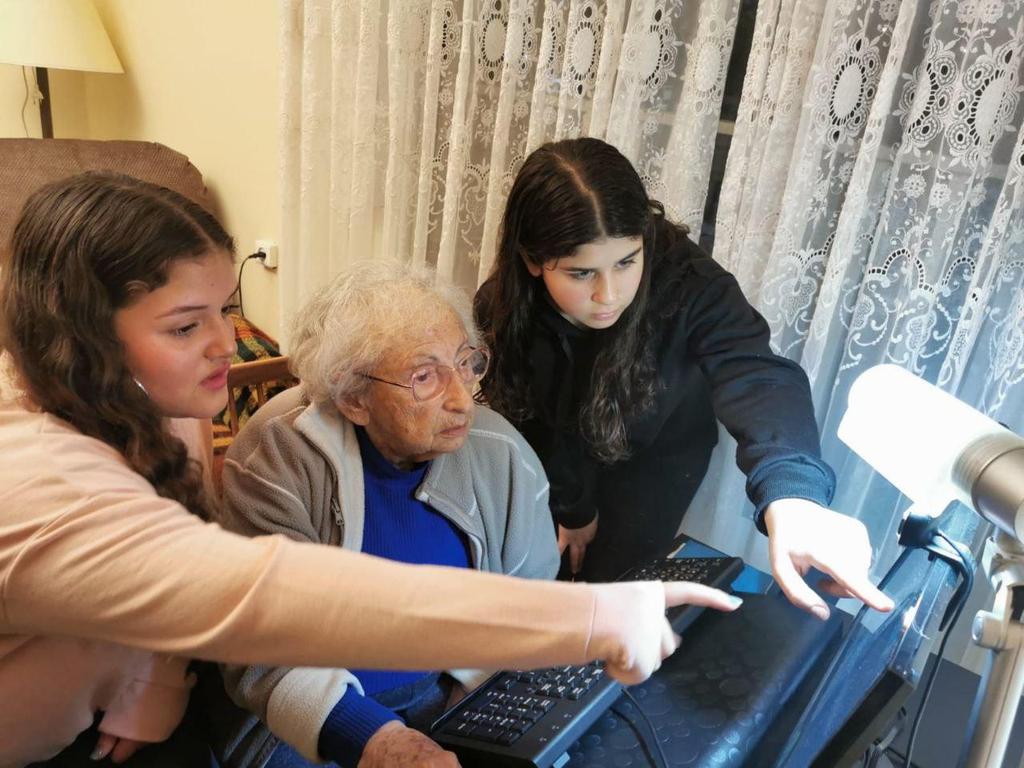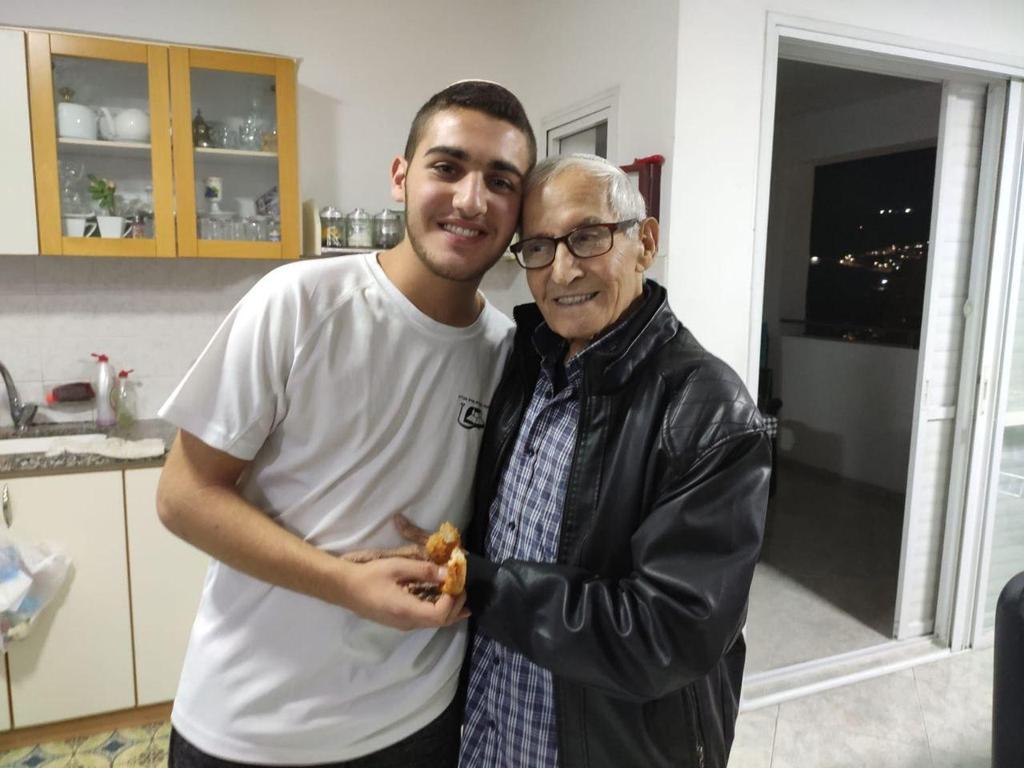While most high school students these days are learning remotely for their matriculation exams, some are taking the time to help Holocaust survivors to better deal with the loneliness many elders are subjected to due to the coronavirus outbreak and social distancing regulations.
Dozens of Israeli students each year participate in the Mechubarim (connected) project, keeping in contact with the survivors living in their area.
As part of the project, hundreds of Holocaust survivors received computers and an Internet connection, and students help them use newly learned tech skills to alleviate any feelings of loneliness.
Although the project runs throughout the year, this extended period of closure and social isolation brought by the coronavirus crisis has given the ongoing interactions with the young people a new dinension.
The relationship between high school student Avital Haham and Holocaust survivor Ludmila (Luda) Garkavienko began about a year ago as part of the project and they used to meet every week.
During their sessions together, Avital taught Ludmila to use a computer and now they keep in touch via Skype.
"Ludmila is all alone in Israel and speaks only Russian, so I taught her how to use a computer and the internet," says Haham.
"I visit her a lot. I even got her flowers for International Women's Day and she got me flowers for Valentine's Day."
In 1941, Ukrainian-born Garkavienko and her mother escaped the city of Odessa as the Nazis were approaching the city.
Ludmila's family still lives in Ukraine and she currently resides at an assisted living facility in the southern city of Arad.
Last year, Avital shared Ludmilla's story with seventh-grade students at the her school.
"It was not easy, but it is important to preserve their stories for generations to come, so that they can appreciate our country as the survivors do."
Haham says that meeting Ludmila has changed her entire perspective of Holocaust survivors.
"Before I joined the project, I pictured Holocaust survivors as very sad and confused people, I was afraid that it would be hard for me to strike a bond with them and make them happy," says Haham.
"However, I discovered that Luda has a youthful and clear mind, and we laugh a lot together."
"Luda's father was killed on the front lines and she and her mother were forced to flee from place to place throughout the war," says Haham.
"I try not to remind her of those times because I'm afraid it will sadden her."
With the onset of the coronavirus pandemic in Israel, Luda went into voluntary isolation and hasn't been able to see Avital since, but the two still talk several times a day.
"Now that we can't meet because of coronavirus, Avital and I talk on Skype and thanks to her I can also talk to my son in Ukraine," Luda says.
"On Skype, I see the person's smile, we can see each other. I feel that I am not alone."
Lian Caspi and Sharon Gur, also from Arad, started to visit Holocaust survivor Fanya Klutz on a weekly basis a few months ago.
Klutz, who will celebrate her 99th birthday next month, was born in a small town in Ukraine and was able to flee by train to Uzbekistan when the Nazis invaded the USSR in 1941.
Klutz says she suffered hunger and many hardships, and many of her family members, including her mother, were murdered in the Holocaust. It was only a decade after the war was over that she learned that her brother had survived.
According to Caspi and Gur, it wasn't simple for Fanya to share her stories from the times of the Holocaust and talking about the subject makes her emotional every time.
"They are very good to me," says Klutz. "Since the coronavirus outbreak started, we were only able to talk on Skype and I am really looking forward to seeing them again when it's allowed."
"Lian and I wait every week to see [Klutz]," Sharon says. "We spoke to her a few times on Skype. She sent us a picture and a video with the help of her caregiver and we also sent her pictures to show that we miss her."
Eighty-one-years-young Eli Ben Hemo from Tiberias grew up in Morocco during World War II.
Ben Hemo immigrated to Israel in 1956 via France and settled in Tiberias.
"Two friends and I have been visiting [Ben Hemo] since the beginning of the year and these meetings with him make us very happy," says Dvir Yitzhak, a student at Ort Tiberias High School.
"He tells us jokes and we immediately knew we would click with him. We come once a week and sat with him and his wife for an hour and a half. Today, we call him several times a week for short and long conversations. Later this week, we will also make a video call together."
"The students give me a lot," Ben Hemo says. "I share my stories with them, and they listen like grandchildren. These days, talking to them is a breath of fresh air."
Shmuel Hayek, chairman of the JNF UK organization that participates in the project, stressed the importance of the students' involvement to some Holocaust survivors.
"It is important to us, especially in these days of a global pandemic and leading to Holocaust Memorial Day, to remember the survivors, some of whom are living in solitude," says Hayek.
"Connecting them to the young people through technology allows them to feel that they belong and not abandoned."





